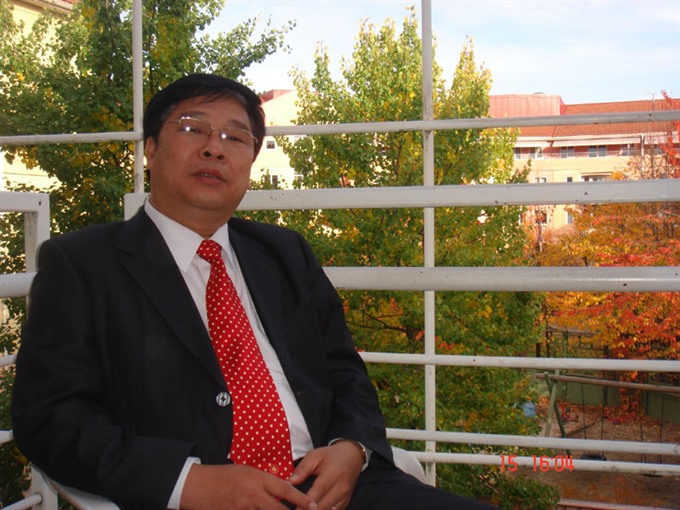[ad_1]
 |
| Composer Đinh Trung Cẩn, general director of the Việt Nam Centre for Protecting Music Copyright. Photo hanoimoi.com.vn |
Violating copyright is a challenge to the development of the country’s music industry.
Composer Đinh Trung Cẩn, general director of the Việt Nam Centre for Protecting Music Copyright (VCPMC), talks to Hương Trà on the issue.
What do you think about the role of copyright in developing the music industry?
The country’s intellectual economy is developing at a rapid rate. Music creations have played an essential role in promoting competitiveness and economic growth. Developing cultural industries in general and the music industry in particular should be based on technology and intellectual copyright.
The aim of copyright is to respect “intellectual property”. The music industry will develop only when musicians are respected both in spirit and in terms of monetary reward.
Copyright is the most effective tool to encourage artists to create. It brings them a steady income and popularises cultural heritage.
Reality has shown that earning money through music and popularising the cultural heritage depends directly on protecting levels of literature and art works. The more art and music of a country are developed, the more popular that country is.
What do you think about the present implementation of regulations on copyright of music in Việt Nam?
Copyright is a fairly new concept in Việt Nam. The legal regulations and conventions on copyright in place are to meet the demands of protecting authors’ rights in general and musicians’ rights in particular.
Various legal documents on copyright have created a safe legal corridor and ensured adjusting social relationships in the field, suitable to international regulations and aimed at encouraging artists to work.
Việt Nam’s current law on the issue is almost complete. It ensures the right of artistes to freely create. It also ensures equal rights for all artistes and the right to make decision by oneself. Under the law, citizens have the right and freedom to create art works under the State’s protection, and this right is respected and encouraged by the State.
However, in reality, the cultural and entertainment industries in Việt Nam have been threatened by violations of copyright. In music, cinema, publishing and painting, copyright violation has deprived artistes of profit. If the relevant agencies do not protect copyright, artistes will no longer be eager to create original, high-quality works, which may otherwise reap huge profits. With copyright violations taking place, the cultural industry cannot develop.
VCPMC is currently the first of its kind and the leading unit in Việt Nam in protecting copyright. After 16 years of its operations, how do you think the copyright issue has changed?
I think protecting music copyright in the past few years has helped considerably to reduce violations, has created trust among authors, encouraging them to compose, and created a healthy and fair playground bringing profits to both creators and users.
In the past 16 years, the VCPMC has used the money collected to pay back to authors.
In our first year in 2002, we got only VNĐ78 million (US$3,400). The sum has gradually increased over the years and has increased sharply in the past few years. By 2017, we got VNĐ200 billion ($8.74 million) from copyright. The centre pays back to Vietnamese and international artistes every quarter.
The number of members of the centre has also increased over the years, together with the number of works added to our stock. From the initial number of 274 composers, nearly 4,000 authors have registered for our membership.
The centre acts as a representative of foreign composers in Việt Nam to manage and utilise copyright in the country.
That is an encouraging result, but it does not seem adequate for the development of Việt Nam’s music market. According to the media, the public has limited understanding about copyright. What do you suggest needs to be done?
Besides coordinating with other agencies to popularise the law on copyright, the VCPMC has spared no efforts to persuade individuals and agencies to facilitate enterprises and households to follow regulations on copyright.
But there are people and agencies still openly violating copyrights, which requires urgent measures, such as strict fines.
The most frequent violations happen online, where users can download and listen to any music.
We hope to receive the support of State management agencies as well as the consensus and cooperation of people from all walks of life, especially the belief of composers. — VNS
[ad_2]
Source link
